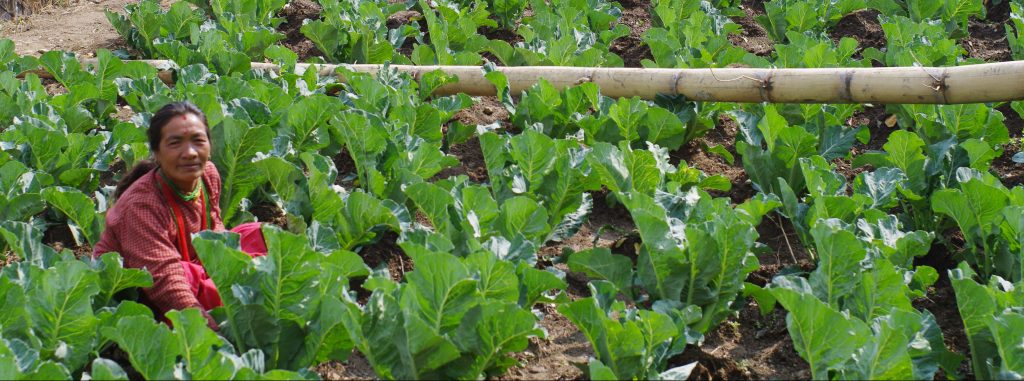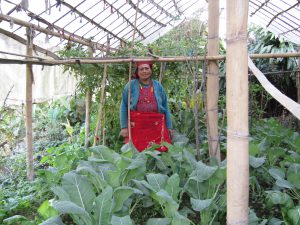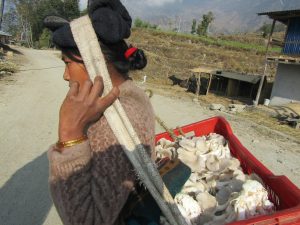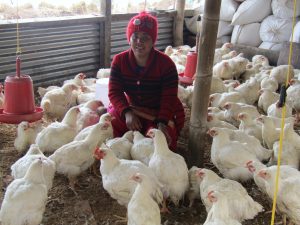
Sustainable Agricultural Development
ETC’s agricultural training and support work enables marginalized women to achieve food security, improve nutrition, and increase household income.
Through their participation in ETC’s sustainable agricultural development activities, women in rural Nepal can grow greater quantities of more nutritious food for their families while also increasing their household incomes significantly – often by 50% or more.
Horticulture

ETC provides hands-on training on a variety of topics, including the cultivation of new and high-value crops. Our work is truly sustainable in three ways:
1. Ecologically sustainable, because we emphasize organic and Earth-friendly cultivation methods that minimize or eliminate the use of agrochemicals
2. Financially sustainable, because these organic cultivation methods such as composting and making pesticides from locally available ingredients don’t cost much or anything, and result in higher crop yields
3. Temporally sustainable, because the skills and knowledge gained through ETC’s training do not expire or wear out – they last indefinitely and can be handed down to future generations and shared with neighbors and friends elsewhere.

All ETC women’s group members grow year-round kitchen gardens in the areas immediately outside their homes. We provide seeds/seedlings, tools such as plastic sheeting and bamboo poles, and ongoing technical support. Through these kitchen gardens, women and their families gain better nutrition and food security, and some women can sell excess produce for a bit of additional income.
Many women expand to market gardening. Popular cash crops vary by region and soil type but have included tomatoes, mushrooms, leafy greens, citrus fruits, and ginger among others.

Livestock Farming
Goats and poultry are particularly popular among ETC’s women’s group members. These animals take up relatively little space, can be inexpensively but well fed and housed, and provide eggs and milk as well as meat. ETC provides intensive training and important resources – including poultry chicks, seed money to purchase goats, and supplies to build animal housing – for our women’s group members who want to start their own small livestock farming businesses.